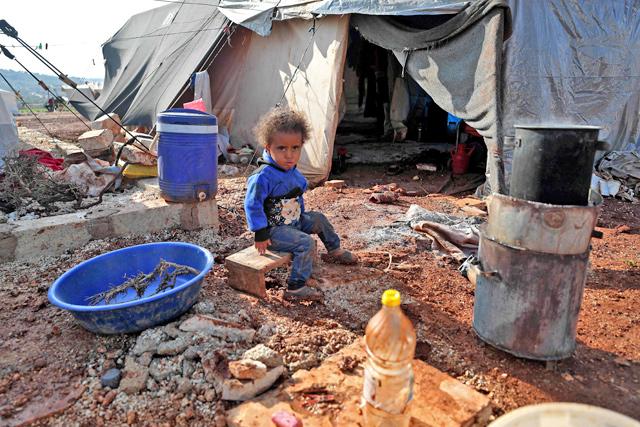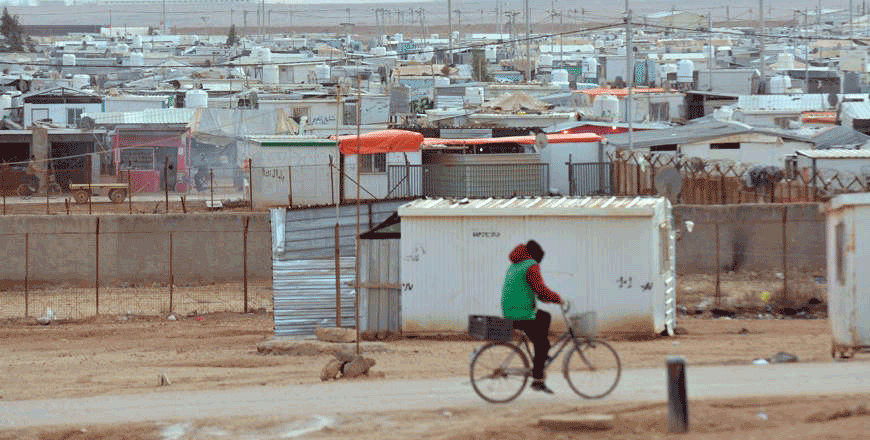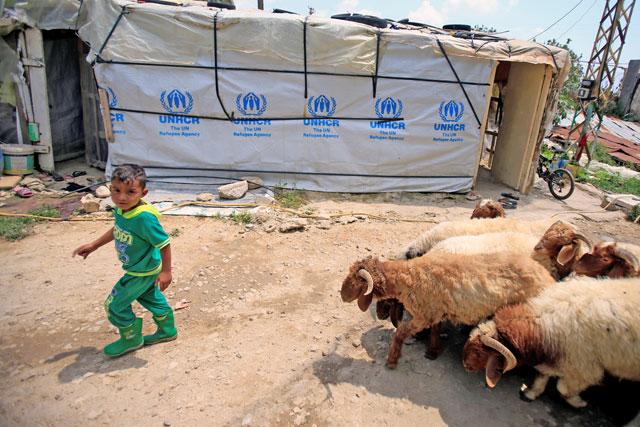You are here
Nine in 10 Syrian refugee families in Lebanon in extreme poverty — UN
By AFP - Dec 19,2020 - Last updated at Dec 19,2020

A child sits outside a tent at the flooded 'Mukhayyam Al Khair' camp near the village of Kafr Uruq in the north of Idlib province on Thursday, housing Syrians displaced from Saraqib and Maaret Al Numan, and following heavy rain in the previous days (AFP photo)
BEIRUT — Nine out of 10 Syrian refugee families in Lebanon are living in extreme poverty, according to a United Nations report released on Friday, citing "compounded crises" in the country.
Lebanon is mired in its worst economic crisis in decades, with its currency plummeting, massive layoffs, soaring prices and rising poverty.
It says it hosts some 1.5 million Syrians, including around one million registered as refugees with the United Nations.
On August 4, one of the world's biggest ever non-nuclear explosions destroyed much of Beirut's port and devastated swathes of the capital.
"The economic downturn, steep inflation, COVID-19 and finally the Beirut blast have pushed vulnerable communities in Lebanon — including Syrian refugees — to the brink," a UN statement said Friday.
According to a survey by the UN refugee agency UNHCR, the World Food Programme and the UN children's agency, 89 per cent of Syrian refugee families in the country are now living in extreme poverty, compared to 55 per cent the year before.
The sharp rise reflects the "compounded crises Syrian refugees have been facing in Lebanon", the statement said.
Syrian refugees are now living on less than 309,000 Lebanese pounds per person per month, it said — $205 according to Lebanon’s official exchange rate, but around $38 at the current black market rate.
The average amount of Syrian refugee household debt has increased by 18 per cent, with “buying food” the main reason for debt accumulation, the report said, adding that food prices in Lebanon had “almost tripled” since October last year.
Half of the families surveyed were suffering from food insecurity, up from 28 per cent the year before, and households with inadequate diets had doubled, according to the survey.
The agencies warned that families’ “coping strategies” included early marriage of children, withdrawing them from school and sending them to work.
“The situation of Syrian refugees in Lebanon has been deteriorating for years, but the findings of this year’s survey are a dramatic indication of how difficult it has become for them to make it through another day,” said Mireille Girard, UNHCR representative in Lebanon.
Related Articles
BEIRUT — Crisis-hit Lebanon has secured $5.4 billion in aid over three years from the UN's World Food Programme (WFP), Lebanon's caretaker P
AMMAN — A survey implemented by the United Nations High Commissioner for Refugees (UNHCR) showed that the income of 88 per cent of Syrian re
BEIRUT — Lebanon's caretaker foreign minister escalated his row with the UN refugee agency UNHCR on Wednesday, accusing it at a news confere













